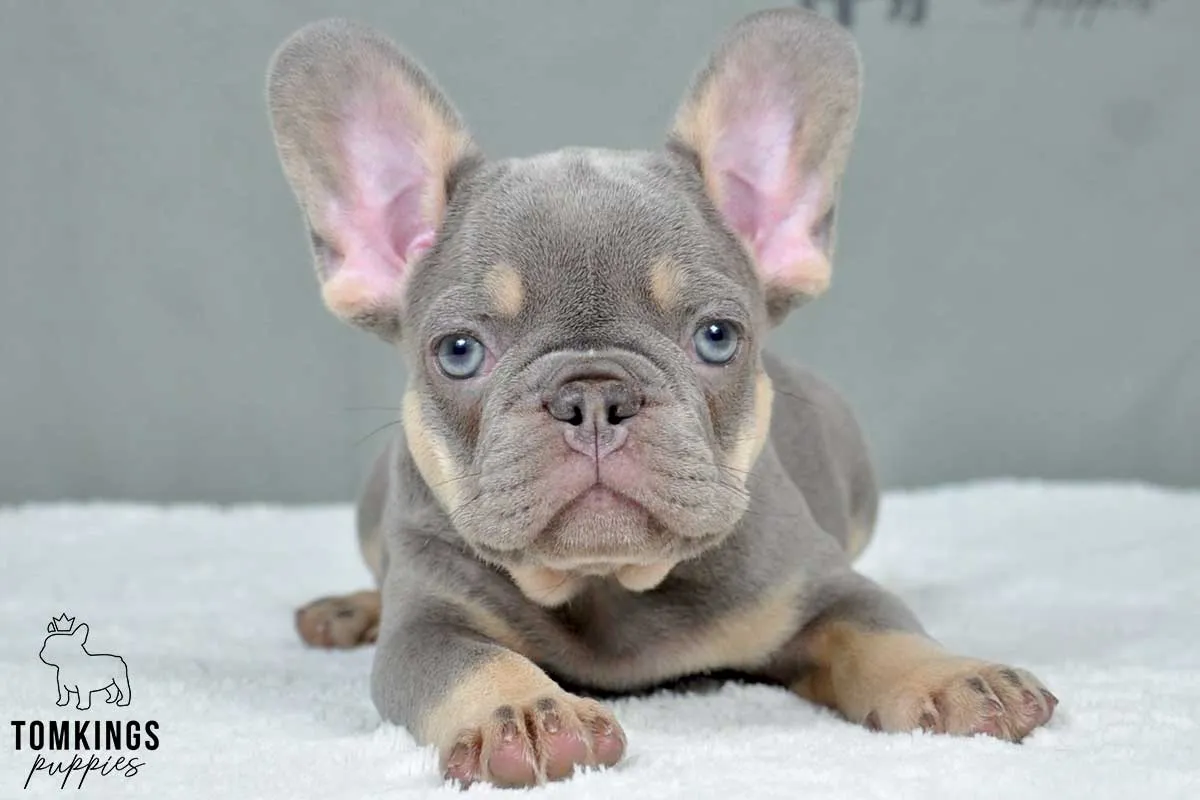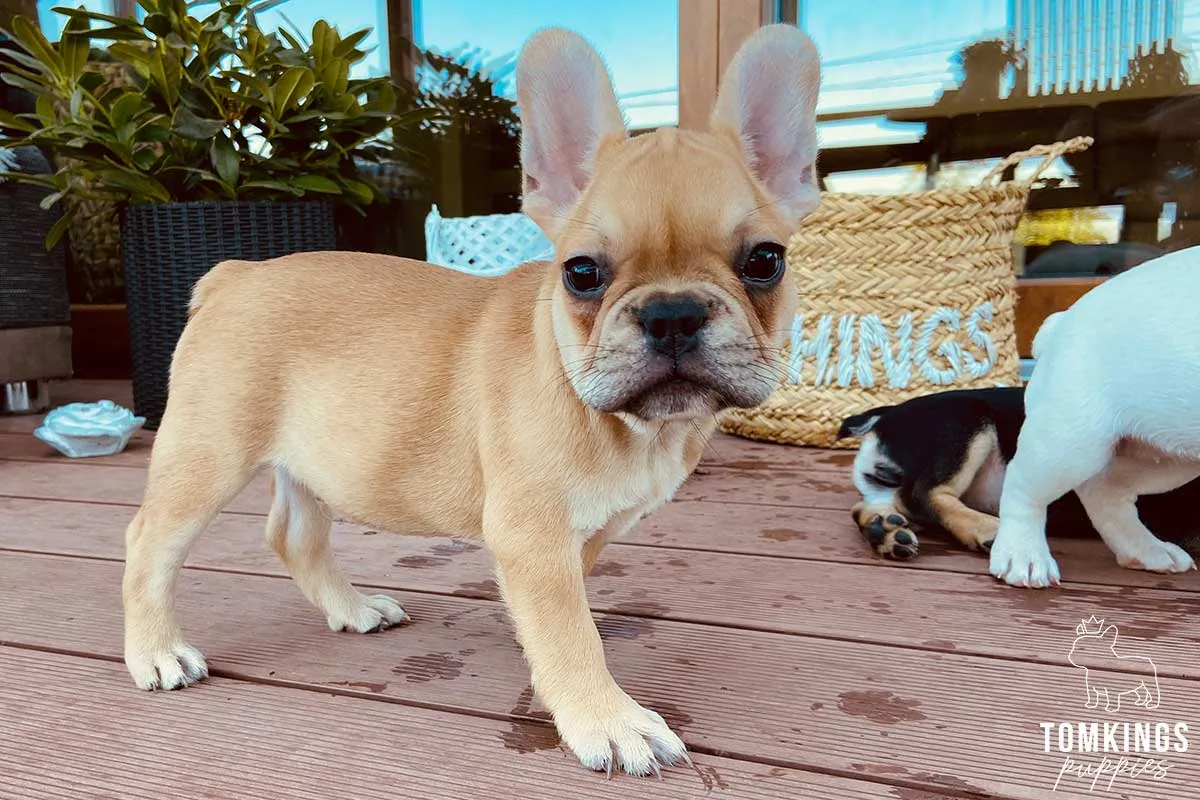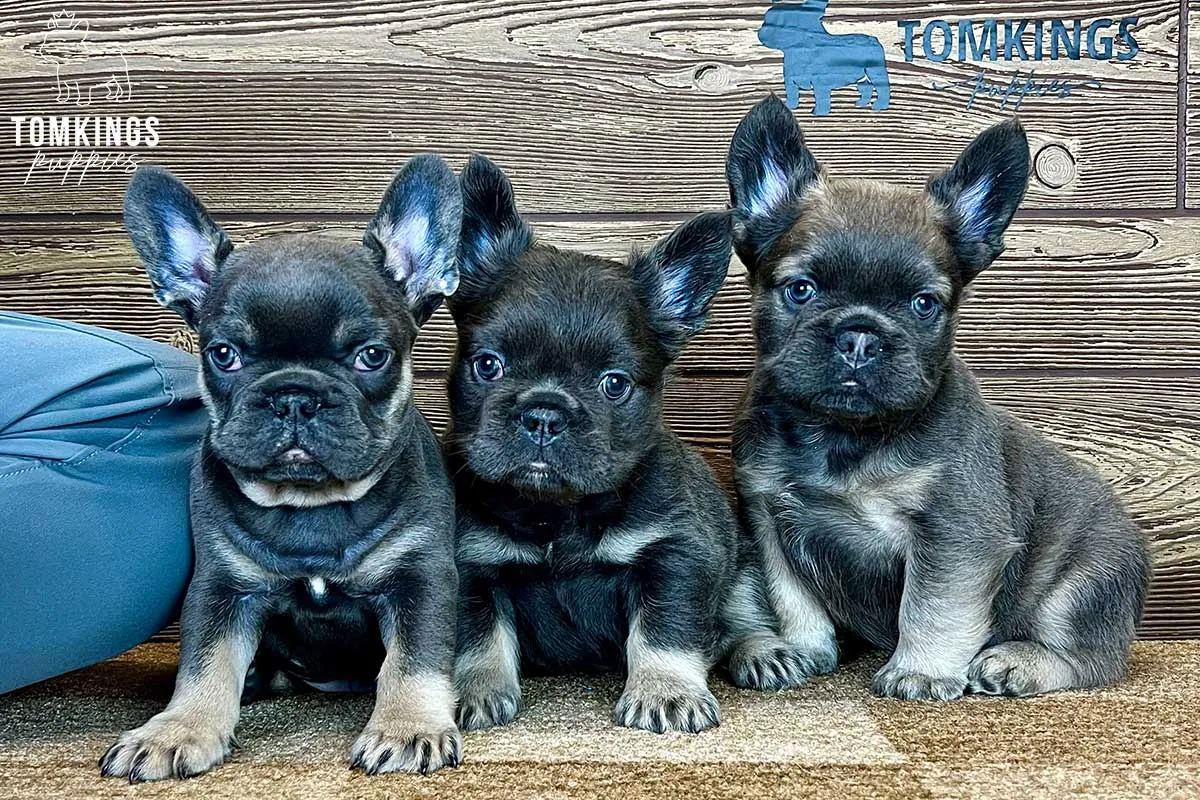French Bulldogs are known for their unique charm and loving personalities. If you’re considering adding another furry friend to your household or looking for a canine companion for your existing Frenchie, a common question arises: “Do French Bulldogs get along with other dogs?” This is a crucial consideration for any pet owner aiming for a harmonious multi-dog home. This guide, drawing from extensive experience in French Bulldog care, explores how these delightful dogs interact with others and helps you identify the best companion dog for your French Bulldog, ensuring a balanced and joyful coexistence for all your pets.
French Bulldogs are more than just pets; they are cherished family members with an endearing personality that’s hard to resist. Their reputation for being sociable and friendly extends to their interactions with a wide range of companions, including children, the elderly, other dogs, cats, and even rabbits. It’s no exaggeration to say they are true social butterflies in the canine world.
 Hero, available French Bulldog puppy at TomKings Puppies
Hero, available French Bulldog puppy at TomKings Puppies
Playfulness is a cornerstone of the French Bulldog’s character. They thrive on fun and games, and having a consistent playmate, whether human or canine, significantly enhances their well-being. While their energy levels are generally moderate, this can vary. Their enthusiasm for play and affection makes them excellent best companion dogs, adaptable to diverse family dynamics.
Frenchies develop incredibly strong bonds with their families, becoming devoted and inseparable companions. Their need for attention is high, stemming from a deep desire to be involved in all family activities. This strong attachment can sometimes lead to separation anxiety if they lack sufficient interaction and companionship, making a compatible furry sibling a potentially valuable addition to their life.
Understanding French Bulldog Interactions with Other Dogs
French Bulldogs generally coexist peacefully with a wide variety of dog breeds due to their friendly disposition and charismatic personalities. However, their unique communication style, including their distinctive body language and lack of a tail, can sometimes lead to misunderstandings with other dogs. Furthermore, their characteristic breathing sounds might be misinterpreted as growling by less familiar breeds. Dogs that share similar traits, such as other bully breeds, often find it easier to understand Frenchies, leading to smoother introductions and interactions.
When considering a companion for your French Bulldog, choosing a breed that complements their temperament and energy level is key. Here are some breeds that typically form excellent bonds with French Bulldogs:
Boston Terrier
The Boston Terrier shares the French Bulldog’s cheerful and affectionate nature, making them an ideal match. Both breeds are playful, enjoy companionship, and have similar energy levels, ensuring they can engage in activities together without overwhelming each other.
Pug
Pugs and French Bulldogs share an affinity due to their endearing temperaments and love for human and canine companionship. Both breeds are known for their laid-back nature, making them excellent lounging buddies for each other. Their similar energy levels mean they often enjoy a shared pace of life, appreciating cozy cuddle sessions.
 Do French Bulldogs Get Along With Other Dogs? – TomKings Blog
Do French Bulldogs Get Along With Other Dogs? – TomKings Blog
English Bulldog
As close relatives, English Bulldogs naturally get along exceptionally well with French Bulldogs, sharing numerous similarities in appearance and temperament. The gentle nature of the English Bulldog complements the playful spirit of the French Bulldog, fostering a balanced and harmonious relationship.
Jessamyn shared her experience in our Facebook group: “It’s only been a couple of days since Beauregard (formerly Kellan) arrived in our lives but I couldn’t be more pleased with how quickly he became fast friends with my 2yr old English Bulldog Orson Wellington. Orson LOVES soccer balls, but we also bought a big rainbow ball as a “neutral ball” for them to learn to play together. Even since filming this yesterday, Beau is no longer afraid of the soccer balls and Orson is loving the rainbow ball too. My sister Amber Parnell and I hoped that they would become best friends but even we couldn’t have predicted how well O-Beau gets along!”
Golden Retriever
Golden Retrievers are renowned for their adaptability and ability to get along with almost any dog, making them a wonderful choice. Their friendly and patient demeanor encourages gentle play and mutual respect with French Bulldogs, creating a positive dynamic.
One of our pups, Davis, spent several days with TomKings Nelli, and was completely captivated by her Golden Retriever, Toblerone.
 Do French Bulldogs Get Along With Other Dogs? – TomKings Blog
Do French Bulldogs Get Along With Other Dogs? – TomKings Blog
Our TomKings Frenchie Parent Jeannine also frequently shares adorable pictures of her Frenchie Aneth and her two Goldens, which are always heartwarming:
 Do French Bulldogs Get Along With Other Dogs? – TomKings Blog
Do French Bulldogs Get Along With Other Dogs? – TomKings Blog
Yorkshire Terrier
Yorkshire Terriers, with their spirited energy and petite size, can pair well with French Bulldogs. Despite the size difference, Yorkies and Frenchies often share a similar zest for play, making them compatible companions.
 Do French Bulldogs Get Along With Other Dogs? – TomKings Blog
Do French Bulldogs Get Along With Other Dogs? – TomKings Blog
Cane Corso
While the size and temperament differences might seem significant, the Cane Corso’s calm and confident demeanor can actually be a great complement to the playful and affectionate French Bulldog. With proper introductions and socialization, these breeds can develop a surprisingly harmonious and balanced companionship. This demonstrates that even with significant differences, understanding and careful management can lead to great friendships, similar to how dog breeds best for emotional support can offer solace.
 Do French Bulldogs Get Along With Other Dogs? – TomKings Blog
Do French Bulldogs Get Along With Other Dogs? – TomKings Blog
Essential Tips for Introducing Your French Bulldog to Other Dogs
Introducing a new dog into your home requires a thoughtful and structured approach to ensure a smooth transition for your French Bulldog and the newcomer. Here’s a step-by-step guide to facilitate positive introductions:
1. Choose a Neutral Meeting Place
Begin introductions in a neutral environment where neither dog feels the need to assert dominance over their territory. A quiet park or an unfamiliar, securely fenced yard provides a neutral ground, helping to reduce potential tension and territorial behaviors.
2. Keep Them Separated Initially
In the early stages, keep your dogs physically separated. This can be achieved through a fence, baby gates, or by keeping them on leashes during initial encounters. This allows them to observe each other from a safe distance, getting accustomed to each other’s presence without the pressure of direct interaction, which can be particularly helpful when considering service dog breeds for anxiety and depression where introductions need to be managed carefully.
3. Familiarize Them with Each Other’s Scents
Before allowing direct contact, exchange scent items like blankets or toys between the dogs. This helps them become familiar with each other’s smell in a non-threatening way, which is a crucial step in building comfort.
4. Monitor Their Interactions Closely
When you allow your dogs to meet face-to-face, closely observe their body language and behavior. Watch for signs of stress, fear, or aggression, such as stiffening, growling, excessive lip licking, or fixed stares. If any negative signs appear, calmly separate them and try again later.
 Urajiro French Bulldog – TomKings Puppies
Urajiro French Bulldog – TomKings Puppies
5. Gradually Increase Time Together
Start with short, supervised play sessions. As the dogs show increasing signs of comfort and positive interaction, gradually extend the duration of their time together.
6. Establish Yourself as the Pack Leader
Dogs tend to coexist more harmoniously when there is a clear and consistent leadership structure. By acting as a calm and confident pack leader through consistent training, rules, and boundaries, you can minimize potential competition and encourage cooperative behavior. If play becomes too boisterous or aggressive, intervene calmly and separate the dogs for a short cool-down period. This can also be beneficial when introducing a new dog to a sensitive breed like a Frenchie, helping them feel secure.
7. Utilize Positive Reinforcement
Reward calm, friendly, and appropriate interactions with praise and small treats. This reinforces positive behavior and helps both dogs associate each other’s presence with pleasant experiences.
8. Continue Affection for Your Existing Dog
To prevent feelings of jealousy or displacement, ensure your existing dog continues to receive ample attention, affection, and special treatment. This reassures them of their valued place in the family and helps foster a positive outlook towards the new addition.
By adhering to these guidelines, you can significantly improve the chances of your French Bulldog forming friendly and lasting relationships with other dogs, providing them with invaluable companionship. This proactive approach is crucial, especially when considering specific needs like emotional support dog breeds for anxiety.
The Dynamics of Multiple French Bulldogs Living Together
Introducing a second French Bulldog into your home can significantly enrich the lives of everyone involved, especially your existing Frenchie. These charming dogs naturally provide each other with endless amusement and company, substantially reducing the likelihood of boredom and associated destructive behaviors like excessive chewing. This constant companionship can be a wonderful asset, similar to how a well-chosen best breed of dog for PTSD can offer support.
 Dragomir, available Fluffy French Bulldog puppy at TomKings Puppies
Dragomir, available Fluffy French Bulldog puppy at TomKings Puppies
Moreover, the benefits of having two French Bulldogs extend beyond just playtime. Their daily interactions serve as a form of exercise, potentially reducing the need for extensive individual walks. A new puppy will greatly benefit from the presence of an older Frenchie, learning through observation and imitation, which can greatly simplify the training process. You will likely notice a definite increase in the overall happiness and well-being of both your dogs. This interconnectedness is also seen in how a best dog companion for Golden Retriever can enhance their lives.
Conclusion: Yes, French Bulldogs Do Get Along With Other Dogs
In conclusion, the question of whether French Bulldogs get along with other dogs can be answered with a resounding yes. These charming canines have a remarkable ability to bring light and joy into any environment, and this extends to their interactions with other dogs. Their adaptable nature and friendly disposition make them potentially ideal playmates for a wide variety of dog breeds. Crucially, selecting a breeder who prioritizes proper socialization from an early age is paramount. This ensures that your new puppy is well-adjusted, friendly, and ready to integrate smoothly into your multi-dog household.
If you’re interested in learning more about French Bulldogs and their social dynamics, consider joining our Facebook group, TomKings Frenchie Family, to read firsthand experiences from other Frenchie parents.
This article is based on the expert knowledge of the TomKings Puppies team, who have been breeding French Bulldogs for 13 years. All images in this post belong to them and their customers and feature puppies from their breed. Explore their available French Bulldog puppies or share your questions and comments below.
